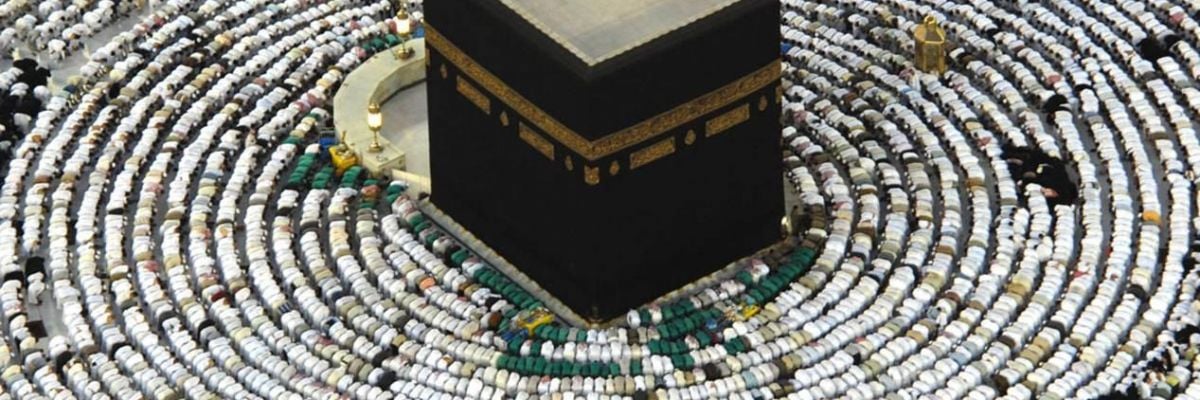
In 2013, Pope Francis received a collection of world religious leaders in his first ecumenical and interreligious event. His address to them contained diplomatic niceties and specific expressions of good will aimed at Orthodox, Protestants, Jews, and Muslims.
His remarks to the latter recognized that Muslims “worship the one living and merciful God, and call upon him in prayer.” In this he echoed the 1964 dogmatic constitution Lumen Gentium, which gave a nod to “the Mohammedans, who, professing to hold the faith of Abraham, along with us adore the one and merciful God, who on the last day will judge mankind.”
Now, both Lumen Gentium 16 and Pope Francis’s words from ten years ago have a pastoral rather than doctrinal purpose. Their aim was to build interreligious bridges by generously acknowledging whatever can be found to be true in other faiths—not to make precise pronouncements about their theology. That said, Lumen Gentium is an exercise of the ordinary Magisterium, and even casual statements from a pope (be it this one from Francis or similar ones made by his predecessors) shouldn’t be taken lightly.
So what does it mean to say that Muslims adore the one God along with us—to say, as can be reasonably drawn from these statements, that Muslims worship the same God as Catholics? We can consider the idea in several senses.
I think we can say with confidence that any monotheist who calls out to the Lord is heard by the Lord, whether it’s a Muslim, a pagan philosopher seeking the God of reason, or a Native American petitioning the Great Spirit. As Lumen Gentium 16 continues, God is not “far distant from those who in shadows and images seek” him.
Likewise, I think we’re on solid ground in saying that the subjective intention of Muslims is to worship the one God—moreover, the one God from the line of Abrahamic revelation. Whether or not their version of that revelation is authentic or correct, that’s what they “profess to hold” to. Furthermore, some of the attributes of the God to whom they address their worship are comparable to the Christian God’s: he is one, merciful, omnipotent, and the judge of the world.
Just as clearly, though, we cannot say that the God in whom Muslims profess to believe is theologically identical to the Christian God. For the most obvious example, their God is a “lonely God,” as Chesterton put it, whereas ours is a Trinity of persons. Beyond that difference, in the divine economy, our Gods are also quite different—most pointedly in that ours took human nature to himself and dwelt among us on earth, whereas the Muslim God remains pure transcendence. To Muslims the idea of an incarnation is blasphemy.
And so perhaps we can distinguish between worship of God and belief in him, the former being more about the intent of the worshiper and the latter being more about the object of belief himself. Thus could Gerhard Müller, bishop emeritus of Regensburg and a former prefect of the Congregation for the Doctrine of the Faith, assert in 2007 that Muslims and Christians “do not believe in the same God,” and yet not contradict any magisterial teaching.
Of course, Jews believe in an utterly transcendent and “lonely” God, too; the idea that Jesus was God’s son, Yahweh incarnate, was likewise blasphemous to the Jews of his day. Is their theology as deficient as Islam’s? Ought we to put them in the same category as Muslims: subjectively worshiping the one God but believing in him, as least partly, in error?
Well, at least one difference suggests itself. Muslims “profess” to hold to the faith of Abraham but really don’t; their version of Abrahamic faith is false. (Of course, they believe that our version is the false one, a corruption of the Quran.) Jews, on the other hand, know and believe in their God according to his authentic self-revelation—what they received from him is true, just incomplete. To be fully true, Jewish theology needs to be perfected by Christian revelation, whereas, although we can identify many truths in it, Islamic theology needs to be broken down, corrected, rebuilt from an authentic foundation.
Now, it can be a bad practice to judge ideas by their sources. But if, as Benedict XVI has said, faith is at root a personal encounter with God, then the authenticity of God’s personal revelation of himself is of the utmost importance. In other words, the source of God-knowledge becomes the question. We worship and believe in God because and to the extent that we know him. And we know him, above all other reasons, according to how he revealed himself to us.
In this sense, then, I suggest that we can correctly say that Jews worship and believe in a God who is qualitatively truer, closer to the God of Christianity, than the God of Islam. Both Jews and Muslims lay claim to the same revelation, but where Jews have an accurate record of it (and thus of the God it reveals), Muslims have a fictionalized adaptation.
This question of the theological similarities and differences between Christianity and Islam is perhaps more important than it ever has been. With religious folk of all kinds increasingly beset by secularism and moral relativism, we look across creedal lines for friends and allies—comrades-in-arms in the fight for unborn life, marriage and morality, religious rights, and a continued place for believers in the cultural conversation. It can be an encouragement and a temptation, then, to look at Islam and see not warriors of jihad against Arab Christians and a decadent West, but fellow soldiers of an “ecumenical jihad” against an anti-theist culture.
Can Islam be that reliable ally? To answer that question, it is crucial that we understand Islam’s God more clearly, and examine more shrewdly the prospects for any future alliance with followers of the Prophet.



